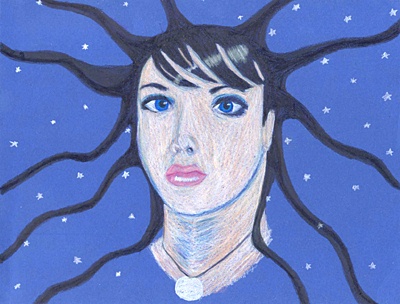All Nonfiction
- Bullying
- Books
- Academic
- Author Interviews
- Celebrity interviews
- College Articles
- College Essays
- Educator of the Year
- Heroes
- Interviews
- Memoir
- Personal Experience
- Sports
- Travel & Culture
All Opinions
- Bullying
- Current Events / Politics
- Discrimination
- Drugs / Alcohol / Smoking
- Entertainment / Celebrities
- Environment
- Love / Relationships
- Movies / Music / TV
- Pop Culture / Trends
- School / College
- Social Issues / Civics
- Spirituality / Religion
- Sports / Hobbies
All Hot Topics
- Bullying
- Community Service
- Environment
- Health
- Letters to the Editor
- Pride & Prejudice
- What Matters
- Back
Summer Guide
- Program Links
- Program Reviews
- Back
College Guide
- College Links
- College Reviews
- College Essays
- College Articles
- Back
i <3 kool shorthand MAG
ROFL. LOL. This “kool shorthand” has become an Internet email and messaging fad, raging out of control, present in every corner of the country. It looks ridiculous and is equally difficult to decrypt. It is very difficult to respond to a message that simply says, “OMG ROFL LOL!” Why do people do this? What is so interesting about horrible grammar? What makes long acronyms so appealing? What good does the misspelling of a word do? I myself struggle when decoding an email infested with Internet lingo and emoticons.
The Internet is a universe in itself, allowing freedom and expression exclusively in text form. But, when combining the Internet with the real world, kool shorthand lingo is born. With personal expression craved on the Internet, we are always trying to find new ways of writing the same word with a personal twist. Also, if you look at the real world, you will find an equal desire to save time and produce in volume as opposed to quality. When the two worlds are combined, you create the shallow realm of Internet speak: characters standing for pictures, acronyms, misspelling and bad grammar.
The least impressive, I think, is the acronym. Simply turning unnatural phrases into single words by capitalizing each letter takes no creativity or imagination, although it is the most popular. There is nothing more unbearable to read than expressing laughter by announcing that your laugh is audible or that you are currently rolling on the floor while laughing. If expressing laughter in text form is essential, the objective could easily be reached by simply using an onomatopoeia term: “haha.” But no, people who stress eccentricity choose odd phrases that would be completely foolish in an ordinary conversation.
The decryption process is further impeded by people who make up acronyms on the spot, such as “OMTISF!” or “NMJCAU,” which respectively mean “Oh Man That Is So Funny” and “Nothing Much Just Chillin’ As Usual.” Acronyms in their Internet context are confusing and annoying.
Another waste of time is the emoticon. For some reason, it was considered necessary to show embarrassment, happiness, anger, and sadness in the form of a typed face. This concept has revolutionized instant message conversations by adding a new graphic element to the text. The only thing about it is that people provide outrageous downloads, sometimes purchases, for “smileys” that can express simple things in unnecessarily elaborate ways. Although they are interesting to look at, they are not all so great. If I can use one simple keystroke to express the response to a question such as “wut did u do 2day?” then I would download this software faster than one can type ROFLMAOLOL. If one “smiley” can show a person wake up, take a shower, eat breakfast, go to school, attend a basketball game, come home, do homework, eat dinner, then go to sleep, I would stop typing complete sentences altogether. Alas, they cannot, and I remain firm in my belief that emoticons are a waste of space.
Misspellings and bad grammar are byproducts of the Internet messaging culture. It is very hard to incorporate acronyms and smileys into a sentence with correct parts of speech and all the rest at once. This is why we should all just type correctly. I try my best to do just that; you will never see a “brb,” “br,” “g2g,” or “OMG” in my sentences. I am no grammarian, and do not always place apostrophes or capitalize when I should, but I can assure you that there will never be an unreadable sentence. There will never be a “cute” spelling of a word when I type, unless I am poking fun at another person’s display of the ridiculousness. There is no need to replace an s with a z, or a c with a k, or replace “to” with the number 2. No one is more interesting when they do that.
All of these concepts should be reflected upon and questioned: Why do I do this? What do I receive by misspelling words? Or having bad grammar? Or inserting a crying face? Internet message shorthand is a large mass of aneurysm-inducing ideas and actions that people use in the interest of time and idiosyncrasy. People say im 2 picky and dat i need 2 jus chill, but das jus me.
I have no idea what the preceding sentence even means.

Similar Articles
JOIN THE DISCUSSION
This article has 3 comments.

0 articles 0 photos 12292 comments